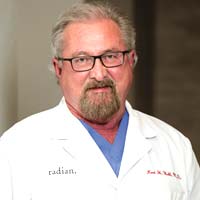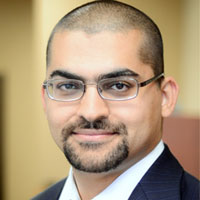Live Hair Transplant Broadcast for Event Attendees
Hair loss issues continue to grow as a concern for so many - male and female consumers across the globe. Beyond hereditary traits, people are losing hair as our nutrition gets worse, environmental effects we cannot control keep changing, and sickness enters our lives.
While the topic is a sensitive one for anyone it affects, the industry for solutions to address hair loss is vibrant today. From over the counter topical medications to vitamins and even hair transplant surgeries, the length people will go to get the hair back, is great.
To help those interested in the topic better understand and visualize what a hair transplant procedure is all about, a Brazilian surgeon at an
upcoming industry conference will be taking part in a live interactive broadcast event as he performs a hair transplant.
Broadcast live from a
hair restoration office in Port Orange, Fla., to conference attendees in Fort Lauderdale, Fla., the broadcast is expected to cover all the bases - from consultation and through a demonstration of two different hair transplant methods.
Reportedly, the broadcast will last from 8 a.m. to 5 p.m. and show how hair follicles are harvested, a how the transplant site is created and how the graft is placed. Both the strip and
FUE methods will be shown to viewers. In addition, not only will the audience be able to watch all of these steps as they occur, but there will also be a microphone in the room so the audience can ask questions during the procedure.
For both future patients and doctors learning about hair transplant techniques this visual live demonstration combined with the chance to ask questions will offer a transformative experience beyond what just a lecture during a conference could tell.
Hairfear - 1-3-2014
Frequently asked questions about hair transplant procedures
How much does a hair transplant cost?
Hair transplants can vary in price based off of the area in the world that you are interested in getting a hair transplant as well as the size of the area where you may need a hair transplant. Experienced doctors in the United States will often charge some of the highest prices for a hair transplant worldwide and this is why so many travelers make the move to other parts the world like Turkey, India, Thailand, Mexico...etc for their hair transplants.
Will a hair transplant hurt?
Although hair transplants may look like a particularly
unpleasant or painful experience is actually very little discomfort involved
with the surgery itself. Hair transplants are always done under an anesthetic so there's absolutely zero pain during the treatment itself. Many people actually relate the process as being very similar to going to the dentist for filling or root canal. Mild pain can persist over the course of postop treatment but he generally just resumes for a few days.
Who can deliver the best surgery?
It's usually best to consider working with surgeons who have and IAHRS certification or international alliance of hair restoration surgeons recognition. IAHRS can often deliver recommendations for the best surgeons in each particular area.
Is this scarring noticeable?
Any type of hair transplant will require the use of incisions throughout the scalp. There can also sometimes be a small scar from the donor area towards the back of the scalp. Asking to look at photos of the surgeon's previous work will help you to see roughly how bad the scarring could be. In most cases an experienced professional can limit the look of scarring and noticeable marks from the surgery.
How long does it take for the hair to grow?
In most cases hair growth will start within eight months and you can start to see a full effect from the hair transplant after a full year. The initial signs of growth can usually start between 3 to 4 months after the surgery.
Are the results permanent?
The hair follicles that are transplanted are generally the ones which are genetically resistant against the symptoms of baldness. As long as you receive hair loss treatment later in your life after the symptoms of balding have started to subside, you can have a better chance at permanent results.
While everyone know you've had surgery?
If you want to limit the chance that people may find out about your surgery it's important to give at least three weeks of healing as the surgical area will be affected and red just after surgery. After around a month of healing it can look far less noticeable. You could consider wearing a hat while time passes or opting for some extra time off if possible.
How long should I rest after surgery?
It's recommended to rest for at least a few days after surgery so that your body can recover. Trenton to over exert yourself and limit sexual activity, running in the gym for around 10 days after surgery.
Is it possible to lose more hair as a result of surgery?
There is always a chance of shock loss which happens when the hair is weak and miniaturizing after the surgery. As long as the surgeon is choosing the correct hair follicles and performing the surgery well it's possible to minimize the chance of this happening however.
Will I need another hair transplant?
The need for another transplant really depends on the individual. With a solid foundation surgery and working to potentially bolster results with drug therapy, you can improve the stability of the hair that was transplanted as well as prevent further loss. Getting a hair transplant early
on in your 20s or early on in life could lead to needing long-term transplants as hair loss can be progressive.







